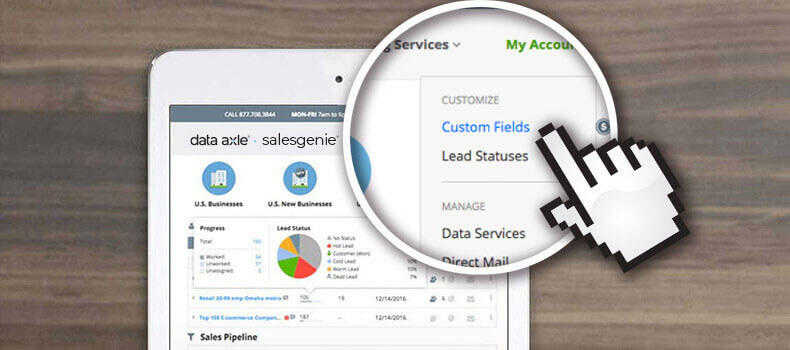The words “business” and “sales” sometimes seem interchangeable. After all, what is a business without sales?
Still, if you’re new to business or even new to owning a business, you might have a few questions about sales, like:
What are sales?
What are sales representatives?
What are sales leads?
How do you make a sale?
Today we’re giving you an overview of the sales basics. In doing so, we hope you gain a firmer grasp on what it means to sell in today’s competitive market!
What are sales?
A sale refers to the exchange of a good or a service, usually for money, to a lead.
A grocery store, for instance, sells food which is a product or a good. A dog daycare sells play packages for dogs which is a service to dog owners with busy, curious, and high-energy pups.
You may also hear a sale referred to as “closing a deal.” And while simplified terms like these make such an activity sound easy, businesses often do a lot of work in order to succeed at selling.
At its most basic, a sale has three steps:

Finding and attracting leads

Building meaningful connections with leads

Offering leads a solution in the form of a product or service
A small company may only have one person who is focused on selling—maybe that’s you! While other organizations will have an entire team dedicated to sales.
What are sales representatives
A sales person may also be called a sales representative. This is an individual employee whose sole job is to sell a product or service.

A great example of a sales representative is a car salesman or saleswoman. When you go to a lot to pick out a new car, you are often met by a sales representative. They ask if you have questions, they can arrange for you to take a test drive, they can help you get started with financing, and they guide you through all the paperwork.
A sales representative may also have a more passive role in a company. Think of your favorite big box store. Here, a sales representative may be available if you have questions about where you can find a specific product. Or a sales representative may be the one to check you out at the register.
Sales representatives may also take on a more active role in contacting potential customers. You may hear them referred to as “telemarketers.” These are sales representatives that connect with you by phone, email, or even direct mail and try to sell you something. Perhaps you signed up to hear from them, but oftentimes you did not.
What are sales leads
A sales lead is an individual that may be interested in goods or services your business offers. A business will have their contact information such as their name and phone number. It is the job of a sales representative to make contact with sales leads and begin to form a connection.
Some sales leads provide their contact information to businesses on their own. They can do this by submitting their information through a contact form.
Alternatively, sales leads can be purchased from a big data company. Organizations can buy a list of leads that meet specific criteria so their sales team has a better chance of selling to the leads.
Sales leads can be divided into three general categories.

Cold leads
These are leads that have not shown interest in your company or your goods or services. These leads have made no effort to contact you directly prior to your reaching out to them.

Warm leads
These are leads that have displayed an interest in your company and/or your goods or services. This interest may be as simple as commenting on your social media post or as complicated as filling out a survey you sent them regarding their needs. You don’t know if these leads are the right fit for your product or service yet, but you should invest the time and resources to find out.

Hot leads
These are leads that are ready to buy (or have previously purchased from you). They know what they want, they have the resources and authority to purchase goods or services, and they stand ready to do so.
To go a bit deeper into the question, what are sales leads, a business may further define warm leads as a Sales-Qualified Lead (SQL) or a Marketing-Qualified Lead (MQL).
An SQL is someone who is a fit for your goods or services and may turn into a warm lead. An MQL is someone who has connected with your business—filled out a form, requested more information, or similar—but is NOT necessarily a good fit for your goods or services. More research and connecting should be done to discover whether an MQL can become an SQL.
A business may know quite a lot or only a little about their sales leads. From their home address, to how much their average sales runs, to whether they own or rent a home, and whether or not they have pets—this is all information a business can collect on sales leads.
If your business sells to companies rather than individuals, the information that you gather looks different. You might collect information about your leads regarding how many franchises they have or how large their fleet is. You could also have the name and direct phone number of their Operations Manager.
How do you make a sale?
Selling can be very easy or very difficult depending on your good or service as well as your customer type. Sometimes, selling is a long process in which your sales lead needs to make lots of connections with you to build trust before they actually purchase.
Sometimes, selling is a short process because a lead may already know the basics around why they need a good or service—and yours is the first one they find!
But both of these sales types have something in common: Marketing!
Good marketing is what can move leads through your funnel, resulting in a sale. Consider the two types of marketing:

Inbound marketing
This is a way to attract leads by way of interesting or educational content. An inbound marketing strategy for your business might include tactics like blogging, video, email marketing, display ads, search engine optimization (SEO), social media posts, or even having a booth or a table at an industry-related event.

Outbound marketing
This is the more traditional method that requires a business to share a specific message with leads that are not necessarily interested in your goods or services. Examples include direct mail marketing, cold calling, and even outbound email marketing.






